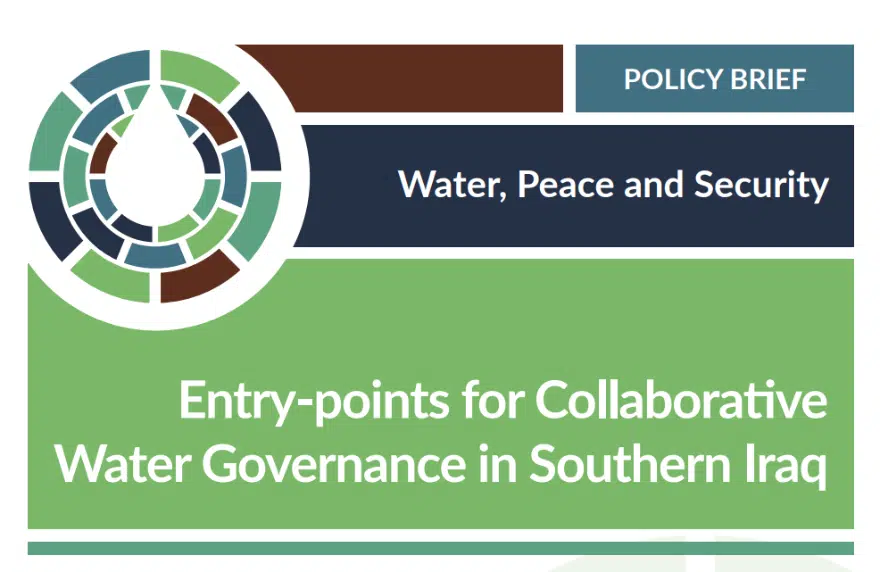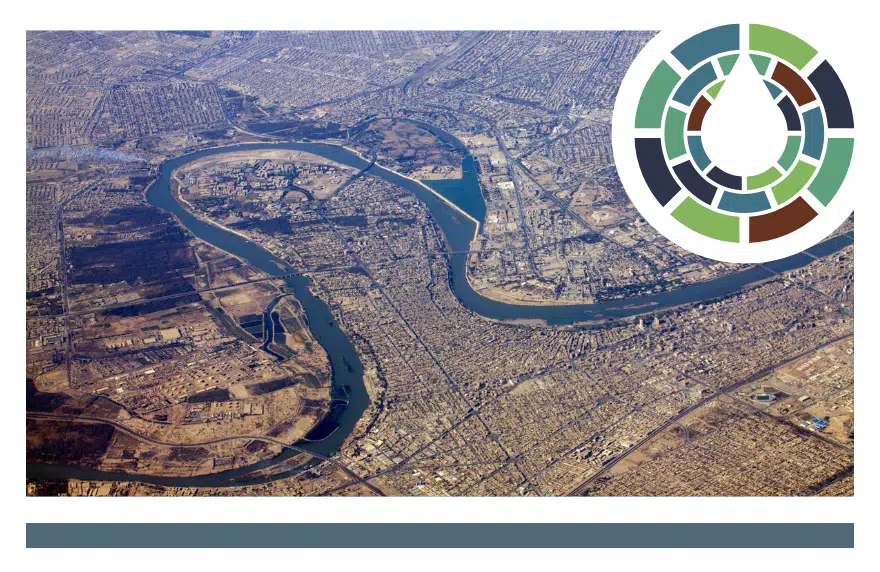Research
In southern Iraq, decades of water insecurity have influenced migration patterns by endangering agricultural output and the livelihoods of farmers. Although global migration is – contrary to popular discourse – remarkably stable, representing on average 3% of the global population in the last 50 years, the majority of people tend to migrate within rather than across borders. 30 out of the 40 million global internal displacements in 2020 were related to water-related hazards.
While a direct link between water insecurity and migration cannot be drawn, water insecurity may indirectly increase migration patterns by impacting individuals’ livelihoods, health, energy and food security.
In Iraq, employment in the agricultural sector has declined over time but remains at 18% of the workforce. Droughts and increasingly saline water are hurting agricultural output in the south of Iraq, and farmers choose to cope in various ways, whether through migration or the search of alternative employment opportunities. Rural communities’ adaptive capacity and personal convictions, networks and affiliations determine whether they choose to migrate or not. In the south of Iraq, public sector employment offered a temporary solution until at least 2014-2015 and many locals chose not to migrate. Yet offering public sector jobs is not a sustainable adaptation strategy to changing climate conditions. Iraq needs an integrated socio-economic approach to strengthen resilience to water insecurity and prevent long term water-induced migration.
Iraqi authorities and the private sector can explore new technologies and agricultural practices to decrease agricultural water use. Substituting current crops with resilient and less water-intensive crops provides long term adaptation to water insecurity. Local coping mechanisms should be complemented by a centralised agricultural support policy to promote innovation, facilitate technological adaptation and mitigate financial burdens on farmers.
Authors: Toka Mahmoud, Irina Patrahau, Alicia Vignali
Contributors: Laura Birkman, Judith Blaauw, Frederique de Groen, Susanne Schmeier, Tobias von Lossow and Rolien Sasse.
Learn more about the Water, Peace and Security Partnership (WPS)





